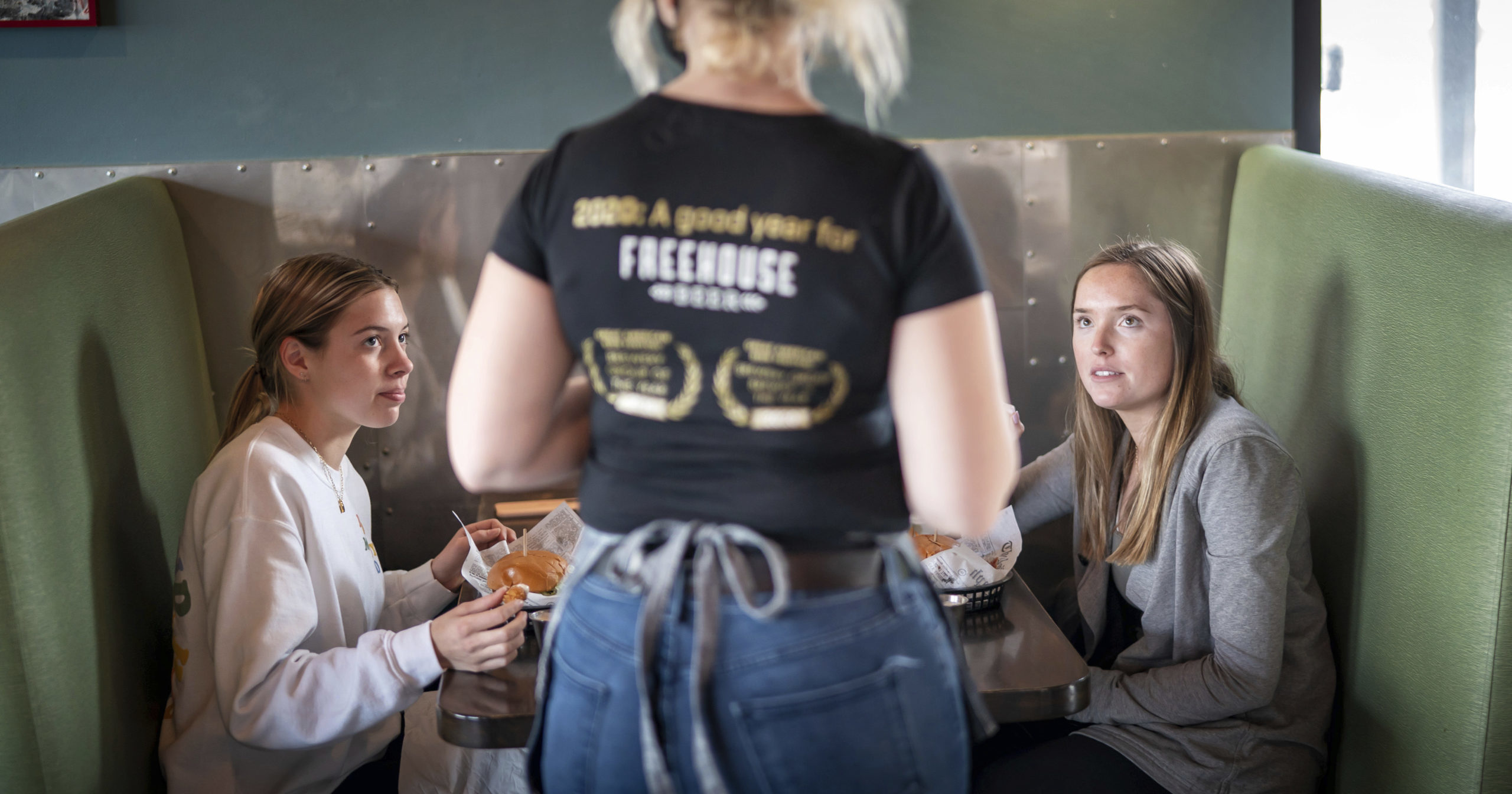
Cuomo Changes Tune on Lockdown as Most States Reject New Virus Restrictions
Ten months after lockdowns began upending daily life and laying waste to livelihoods across the nation, governors and local officials are rejecting new restrictions on businesses.
And unlike in 2020, when the debate over lockdowns often split along party lines, both Democratic and Republican leaders are opposing forced closings and other measures.
Some have expressed fear of compounding the heavy economic damage inflicted by the lockdowns. Some see little patience among their constituents for more restrictions nearly a year into the coronavirus pandemic. And some are more focused on the rollout of the vaccines that could eventually bring it to an end.
The most notable change of tune came from New York Gov. Andrew Cuomo, a Democrat, who imposed a tough shutdown last spring as his state became the epicenter of the U.S. outbreak.
“We simply cannot stay closed until the vaccine hits critical mass. The cost is too high. We will have nothing left to open,” Cuomo said this week.
We simply cannot stay closed until the vaccine hits critical mass. The cost is too high. We will have nothing left to open. We must reopen the economy, but we must do it smartly and safely.#SOTS2021
— Andrew Cuomo (@NYGovCuomo) January 11, 2021
Theaters remain closed and there is no indoor dining in New York City, but Cuomo said Tuesday that if a system of rapid virus tests could be developed, it could allow those things to return.
In Arizona, Republican Gov. Doug Ducey has been steadfast in his opposition to a statewide mask mandate or the closing of bars, gyms and restaurant dining. And high school officials voted Tuesday to allow winter sports, reversing a decision made four days earlier to cancel the season.
“If we’re really all in this together, then we have to appreciate that for many families ‘lockdown’ doesn’t spell inconvenience; it spells catastrophe,” Ducey said.
Governors in other states have expressed similar sentiments and are loosening restrictions.
Minnesota allowed in-person dining to resume this week, Michigan is set to do the same, and some bars and restaurants in the Kansas City area are extending their hours.
In Kansas, the state’s largest school district with 47,000 students plans to resume in-person learning.
In Idaho, where many lawmakers refuse to wear masks in the statehouse, a federal judge on Tuesday said he won’t order stricter coronavirus restrictions while a lawsuit moves forward from two legislators concerned about being exposed.
Nevada, meanwhile, is extending restrictions on restaurants that were set to expire Friday.
California is another outlier, with a strict lockdown in most of the state that has limited restaurants to takeout and delivery and shuttered hair salons and gyms.
Yet hospitals in Los Angeles are so swamped that patients are being treated in gift shops and parking lots.
Officials started urging people to wear masks even at home if they go outside regularly and live with someone elderly or otherwise at high risk. California’s COVID-19 death toll reached 30,000 on Monday.
Anger over the restrictions has led to a recall movement against Democratic Gov. Gavin Newsom that has nearly gathered the 1.5 million signatures needed to put his governorship to a vote.
Some Californians are escaping by heading to neighboring Arizona, where they can eat and drink at bars and restaurants.
Bartender Raul Amaya, who works at Carly’s Bistro in Phoenix, said he is grateful for the business since it keeps him employed.
“I think every time there has been a closure in different states, a lot more influx of different people from different states has come in,” he said. “The only reason I’ve noticed it is they want a drink and we have to ask for ID from everybody. So, I was like ‘Oh, this is a lot of California or Nevada IDs.’”
More than 9.3 million Americans have received their first shot of the vaccine, according to the Centers for Disease Control and Prevention, fewer than officials had hoped for by this point.
On Tuesday, the Trump administration announced plans to speed things up by releasing practically twice as many vaccines instead of holding large quantities in reserve to make sure that people received the required second dose on time.
The practice of holding back doses was spurred by fear of production delays, but officials said they are now confident the supply will be enough.
The Trump administration also asked states to immediately start vaccinating groups lower down the priority scale, including the estimated 54 million Americans 65 and older, as well as younger people with certain health problems. Several states had already begun offering shots to senior citizens over the past few days.
The Western Journal has reviewed this Associated Press story and may have altered it prior to publication to ensure that it meets our editorial standards.
Truth and Accuracy
We are committed to truth and accuracy in all of our journalism. Read our editorial standards.
Advertise with The Western Journal and reach millions of highly engaged readers, while supporting our work. Advertise Today.












